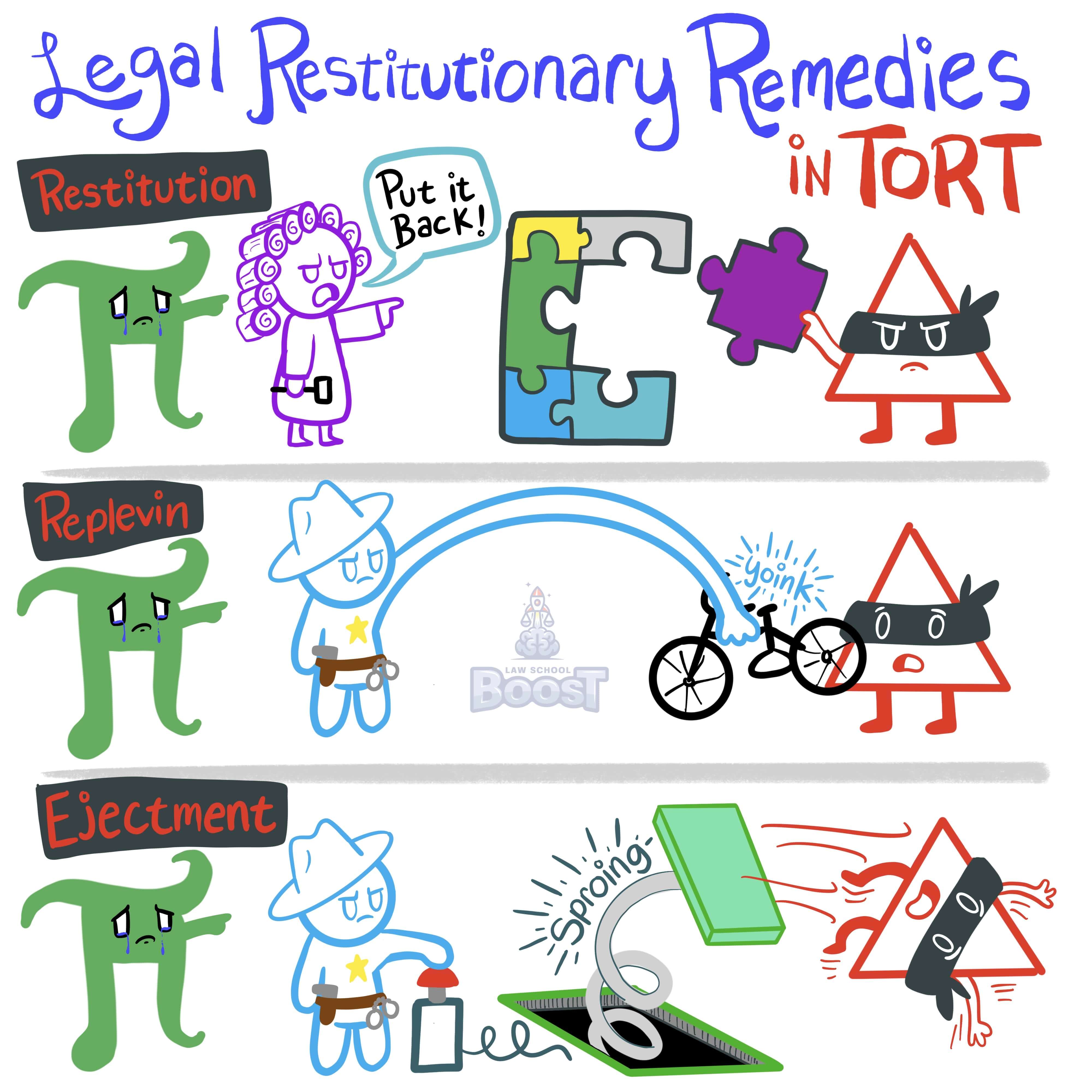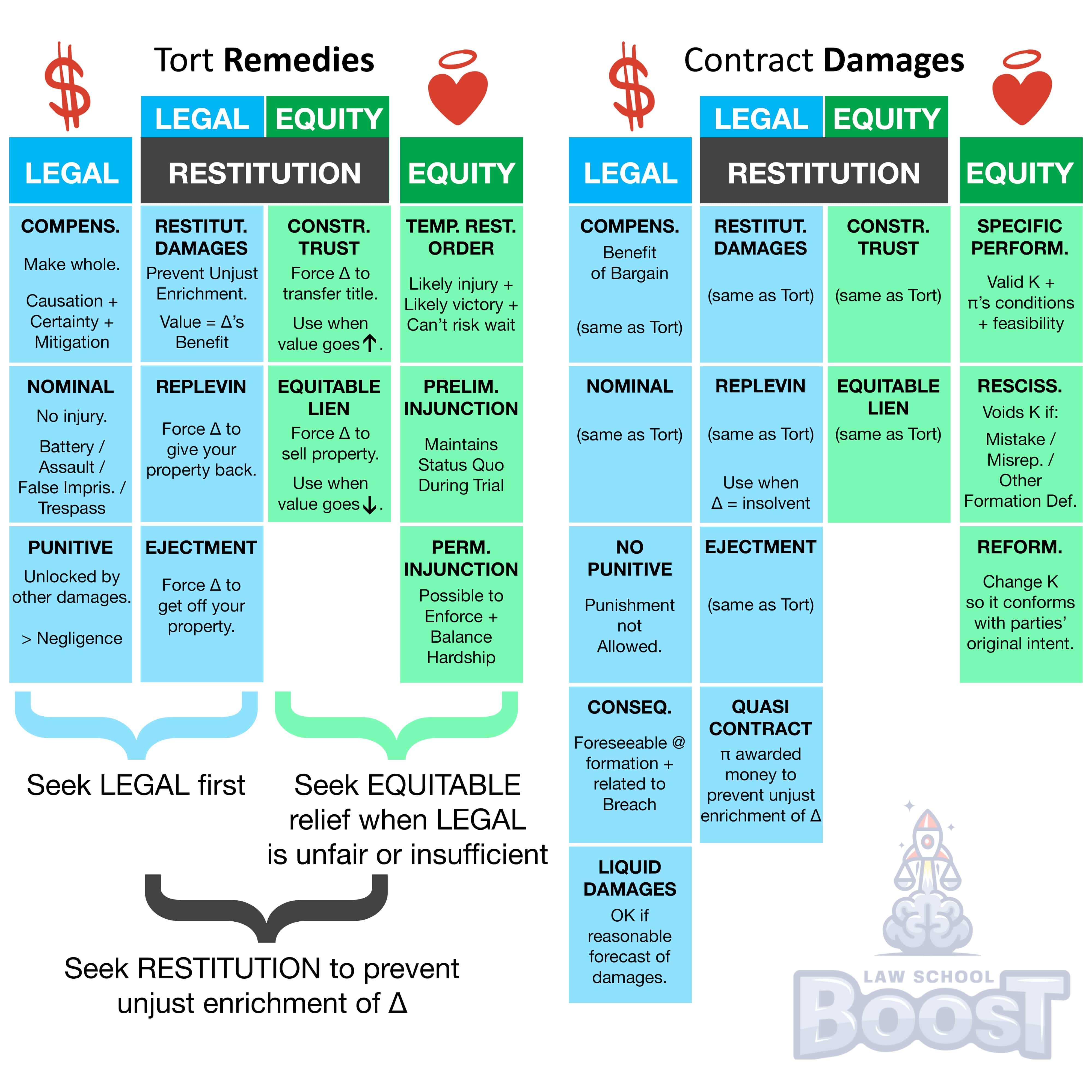🏥
Remedies • Tort - Legal Restitutionary Remedies
REM#012
Legal Definition
Legal restitutionary remedies in tort consist of (1) restitutionary damages; (2) replevin; and (3) ejectment, and are geared towards preventing the defendant from being unjustly enriched.
Plain English Explanation
Restitutionary (as in "restoration") remedies are a type of remedy that tries to strip away any gains a person made from doing something wrong. This gain is sometimes called "<unjust enrichment>." There are three types of restitutionary remedies you'll need to know (and we'll cover more deeply in other cards):
(1) Restitutionary Damages, which seek to transfer any unjust enrichment from the defendant to the plaintiff (i.e., when they did something wrong and benefitted, the law would rather the plaintiff benefit than the defendant, since the defendant acted wrongly);
(2) Replevin, which is used to take back property from someone who has wrongfully taken possession of it; and
(3) Ejectment, where someone is kicked off of land (or out of property) they have no right to be on or in.
(1) Restitutionary Damages, which seek to transfer any unjust enrichment from the defendant to the plaintiff (i.e., when they did something wrong and benefitted, the law would rather the plaintiff benefit than the defendant, since the defendant acted wrongly);
(2) Replevin, which is used to take back property from someone who has wrongfully taken possession of it; and
(3) Ejectment, where someone is kicked off of land (or out of property) they have no right to be on or in.
Hypothetical
Hypo 1: Bob hacks into Sam's online bank account without permission and transfers $5,000 to his own account. Result: The court could order Bob to pay $5,000 in restitution damages to undo his unjust enrichment from stealing Sam's money.
Hypo 2: Bob sneaks onto Sam's property and removes antique vases that Sam inherited from his grandmother. Result: Sam could obtain a replevin order requiring Bob to return the specific vases.
Hypo 3: After Bob's lease ends, he refuses to move out of the apartment rented from Sam. Result: Sam could get an ejectment order to forcefully remove Bob from the premises.
Hypo 2: Bob sneaks onto Sam's property and removes antique vases that Sam inherited from his grandmother. Result: Sam could obtain a replevin order requiring Bob to return the specific vases.
Hypo 3: After Bob's lease ends, he refuses to move out of the apartment rented from Sam. Result: Sam could get an ejectment order to forcefully remove Bob from the premises.
Visual Aids




